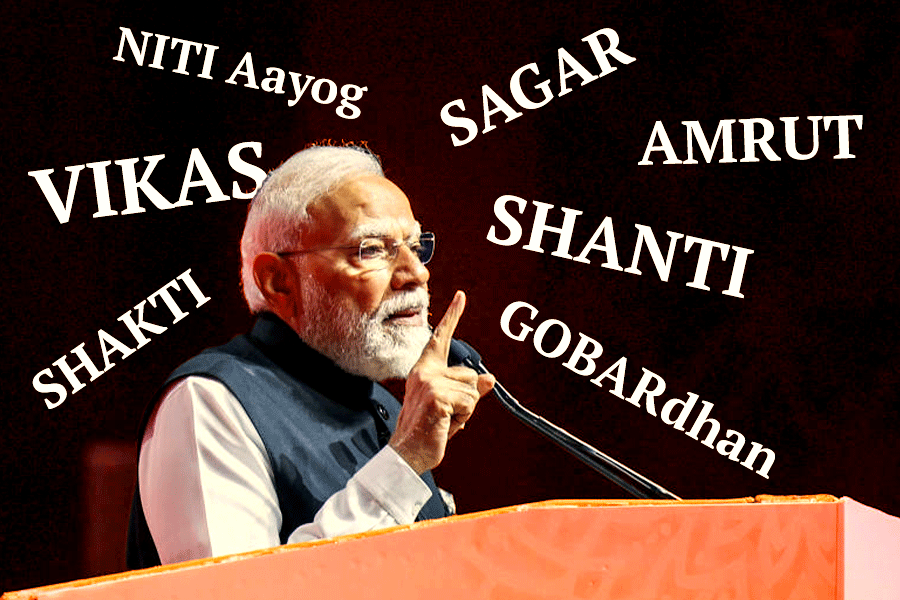
On a warm evening at an outdoor charity rock concert not far from Minneapolis, restlessness overtook Andrew Zimmern. So he pushed through a cloud of cigar smoke, dodged a waiter handing out tuna tartare on edible spoons and charmed his way past a guard at the backstage fence. Somehow, he ended up on stage with Cheap Trick, screaming the group’s 1978 hit Surrender into a microphone, a Hamer Explorer guitar slung over his shoulder.
His deep need to stay in motion is apparent whether you’re a fan of his long-running Travel Channel show Bizarre Foods With Andrew Zimmern, one of his two million followers on Twitter and Instagram, or just a reporter along for the ride (he drives his Audi too fast).
Zimmern, 57, might be one of the last acceptable old white guys in food media. In an age of reckoning over sexual harassment and the rise of global American cuisine that rejects cultural appropriation, the man who once sold T-shirts printed with the slogan “Food Woody” and made a career eating coconut grubs and raw pig testicles in other countries should be getting pummeled by ratings and torn up on social media. But so far, the opposite is happening. He has never been more successful or more popular.
Zimmern has had to do a fair share of self-correcting lately, both personally and professionally. Some changes have been subtle. He has quit using the phrases “ethnic food” and “hole in the wall,” which he came to see as derogatory and steeped in white privilege. Others are more substantial, like taking on a muscular new business strategy. Some are just sad, like trying to unpack why he and his wife, Rishia Zimmern, are getting divorced. The split is difficult but amicable, they say. The couple have a son, Noah, who is 13.

The merry-go-round of being a public person
He is bracingly frank about where his marriage went wrong. They met 18 years ago at a cookware store in Minneapolis and married two years later. He was leaving the restaurant business and starting a career in food media, a shift he thought would allow him more time to be a family man. It had the opposite effect, especially as his career took off.
“I wasn’t there for my wife, and I wasn’t there for my son,” he wrote in an email. “My wife gave me a thousand chances to make it right.” He underestimated his own ambition, he wrote, and “the strange dependence I would come to have surrounding all the attention and the merry-go-round of being a public person.”
It’s something he used to talk about with Anthony Bourdain, who killed himself in June. Bourdain’s Travel Channel show No Reservations started two years before his, and over the years they became friends. They would huddle up when their paths crossed, exploring the dark places inside both of them, and the perils of using the road and fame to fill them.
“We shared a very, very deep feeling of wanting to get off this crazy roller coaster, but at the same time knowing that this was our work,” Zimmern said in an interview on the day Bourdain died.
The death has intensified his quest to learn balance, something he says is elusive for chefs, athletes, actors and other celebrities. “In all honesty, it’s at the core of what the impostor syndrome is all about,” he said. “People telling you all the time how great you are, how much you’ve accomplished, screaming, ‘We love you! You’re the best!’ from the car speeding by. But at the end of the day, on the inside, you don’t always feel good about yourself.”
His solution is to double down on health and sobriety. “I want to be the best dad and the best ex I can be.”
Walking human encyclopaedia
Still, his ambition runs deep. So does his taste for business, which he started honing as a young drug dealer at the Dalton School, an exclusive prep school on the Upper East Side he graduated from in 1979.
“I always say I don’t want to be the best. I want to be the only,” he said over hand-cut noodles one recent afternoon at Shan Dong Restaurant in Oakland, California, a favourite of his. “You want to bust your ass and make the perfect hot sauce and market yourself against 300 other brands of incredible hot sauce? You’re a schmuck. You actually want to go out and make something different. Be the only.”
Zimmern is the star of four shows, including Big Food Truck Tip, which premieres September 19 on Food Network. His production company, Intuitive Content, is firmly in the black, he says; it’s cuing up food shows, documentaries and branded content.
His philosophy, he says, is “land and expand.” It’s a strategy he honed when he was breaking into television. Bizarre Foods, it turned out, was a perfect Trojan horse.
His producers helped him see that the show needed to be about 25 per cent education and 75 per cent entertainment, instead of the brainier show he had envisioned. So when the pilot aired in the fall of 2006, he was an affable white guy eating fruit bats in Chiang Mai and a beating frog’s heart in Tokyo.
Slowly, he has turned the ship. The show is still an easy-to-consume hour of travel with unusual food, but now Zimmern walks more directly into cultural issues, like race in America.
He is smarter than the average viewer may give him credit for, said Cheryl Yaffe Kiser, executive director of the Lewis Institute for Social Innovation at Babson College in Massachusetts, where Zimmern is an entrepreneur-in-residence.
“He’s like this walking human encyclopaedia of food cultures and people,” she said. “There isn’t anything he doesn’t know about anything. I could talk to him about retail clothing and he would know something.”

I want to teach tolerance and love
Zimmern talks regularly to sober chefs who are thinking about relapsing, and people who want to stop drinking. He texts friends who he knows are on the edge of emotional breakdowns. He has spoken at more jails and rehabilitation centres than he can recall.
It helps keep him sober. So when a programme manager at San Quentin, the death-row state prison on San Francisco Bay, asked him to speak to about 120 prisoners who were graduating from sobriety and behavioural programmes, the answer was an easy yes.
On a July morning, he stepped to a lectern in a cinder-block hall, shoved his hands into his jeans pockets and launched into his story. “I have spent my life always trying to game whatever situation I was in,” he began.
For the next hour, he laid it all out. Born in Manhattan, an only child, to parents who were divorced by the time he was five. His father was a world-travelling former Navy man with a big appetite who got into the advertising game and lived much of his life as a closeted gay man.
His mother struggled with the effects of brain damage from a botched surgery to remove an appendix scar. She slipped into a coma while Zimmern was away at camp. When he came home, his father’s advice was never to talk about it.
“I thought, ‘Fantastic,’” Zimmern said.
He started drinking in earnest then, and became a drug dealer in high school and college, where he drank so much he was hospitalised for alcohol poisoning. He was arrested a lot.
He took some summer jobs cooking, and discovered he was good at it. He got better when he worked in European restaurant kitchens during breaks from college.
He fell in love with heroin, and his addictions grew so bad that even restaurants didn’t want him anymore. He kicked the drugs, but not the drinking. He ended up living in an abandoned building in SoHo, stealing purses from the backs of chairs at outdoor cafes.
“I was the vagrant pushing the shopping cart that people crossed the street to avoid,” he told the inmates.
At San Quentin, he told the inmates that he had found a higher power and a purpose: “I want to teach tolerance and love and understanding in a world that doesn’t have enough of it.”
Afterward, he hung out at the back of the room, forking through a slab of sugary orange-flavoured sheet cake and drinking a cup of blue punch an inmate had scooped from a plastic cooler.
“I’m more comfortable here than in the room I’m going to walk into to make television tonight,” he told them.
“You’re good, man,” one inmate answered. “We got you.”
Kim Severson
(The New York Times News Service)











